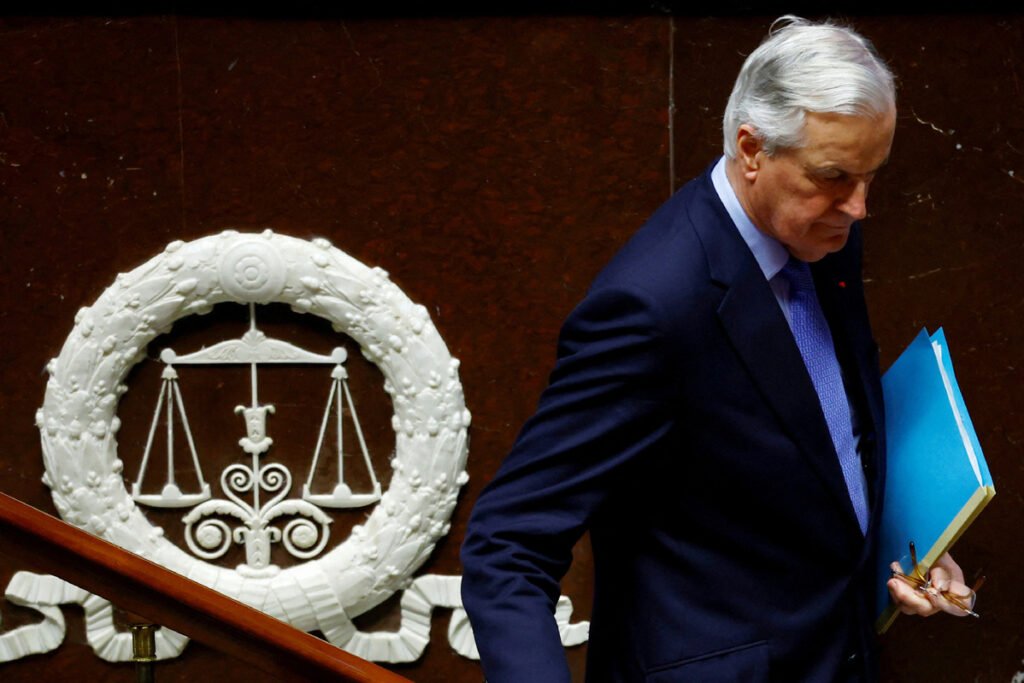The government of French Prime Minister Michel Barnier has been ousted after a vote of confidence in the French National Assembly. The defeat plunges the country into a political crisis as concerns over the country’s budget and future stability grow. On December 5, 2024, the 331 members of the 577-seat French National Assembly voted to remove Barnier’s centrist minority government. This is a huge political moment for the country amidst growing economic challenges, such as a rising budget deficit.
The vote of no-confidence was tabled by all opposition parties, ranging from the far left to the far right. They were incensed after Barnier used special powers to ram through budget measures not approved by parliament. Traditionally, budget measures should be debated and voted on by the lawmakers. The special powers used by Barnier’s government under Article 49.3 of the French constitution denied the usual procedures of the National Assembly. This move was viewed as very contentious by political opponents.
Barnier’s government is the first in more than sixty years to be toppled by a vote of no confidence. Defeat almost certainly means that Barnier will submit his resignation to French President Emmanuel Macron and thus bring the curtain down on his short stay as head of government.
He managed to hold office as the French head for only 91 days-the shortest-serving leader of France during the French Fifth Republic. His cabinet, which is fragile with both the representation of center and right-wing ministers, survived for only 74 days. After the union between the left-wing alliance called the New Popular Front and the far-right party National Rally to remove Barnier from office, things became tough for Barnier to manage his position.
The NFP and RN were particularly incensed by Barnier’s use of Article 49.3. That allowed him to skip the usual parliamentary vote on a social security budget bill. That bill aimed at fighting France’s growing social security deficit and was rejected by the National Assembly. That government defeat was one of the decisive factors leading to this vote of no confidence.
The government had always been fragile because, from its start. It was a minority administration consisting of President Macron’s centrist party and the right-wing Les Republicains, or LR. Outnumbered in the National Assembly, Barnier was vulnerable to pressure from opposition parties. RN has 124 seats in the Assembly, having similarly played an important role in defeating the government over policies.
With Barnier’s government now out of power, France is left facing a period of uncertainty. Under the current French constitution, President Macron cannot call new legislative elections until next July, which means any new government will likely require a coalition of several parties, which could lead to further instability.
This development befalls at a time when France is faced with major economic difficulties. With a growing budget deficit that has increased fears over France’s ability to manage its economy well. Barnier’s dismissal has deepened these fears further, and nobody knows which way the French government will turn in the months ahead.
What Barnier finally has, a very short-lived premiership, is over, having been defeated by a vote of no confidence. The bottom line is that the French political landscape is more uncertain now than ever. And it’s going to take a robust coalition to meet the challenges.
-ANI
Also Read: PM Modi Visits ‘PM Vishwakarma’ Exhibition in Wardha
